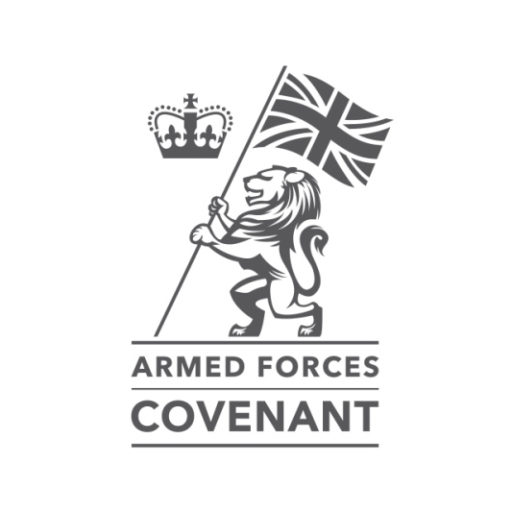FAQs – The Covenant Legal Duty
Answers to Frequently Asked Questions (FAQs) about the Covenant Legal Duty are provided below.
What the Legal Duty covers
The organisations subject to the Legal Duty are certain specified public bodies responsible for providing local healthcare, education and housing services to the general population:
- In England: Local authorities; Governing bodies of maintained schools and further education institutions; Proprietors of Academies; Non-maintained special schools and special post-16 institutions; NHS England, integrated care boards, NHS Trusts and NHS Foundation Trusts.
- In Wales: Local authorities; Governing bodies of maintained schools; Local Health Boards, Special Health Authorities, and NHS Trusts.
- In Scotland: Local authorities and local authority landlords; Integration authorities, Health Boards, Special Health Boards, and the Common Services Agency for the Scottish Health Service; Persons or bodies whose help is requested under section 23 of the Education (Additional Support for Learning) (Scotland) Act 2004.
- In Northern Ireland: The Northern Ireland Housing Executive; The Education Authority and the Board of Governors of a grant-aided school; The Department of Health (Northern Ireland), but only when exercising the relevant healthcare functions in scope of the Duty that were exercised by the former Regional Health and Social Care Board prior to its dissolution; Local Commissioning Groups, and Health and Social Care Trusts.
Table 1 and Appendix 1 of the statutory guidance provide further detail about the organisations subject to the Legal Duty.
The organisations listed in Question 1 are subject to the Legal Duty when exercising a ‘relevant function’. Relevant functions are the making of decisions and policies relating to:
- In healthcare: (1) provision to the general population of NHS Primary Care, NHS Secondary Care, and local authority-delivered healthcare services; (2) planning and funding of these services; and (3) co-operation between bodies and professionals providing these services.
- In the compulsory education of children in the general population: (1) school admissions; (2) educational attainment and curriculum; (3) child wellbeing; (4) transport to/from school; (5) attendance at school; (6) additional needs support; and (7) the Service Pupil Premium (the SPP is England-only).
- In housing: (1) allocations policies and tenancy strategies for social housing for the general population; (2) homelessness in the general population; and (3) Disabled Facilities Grants for the general population.
Table 2 and Appendix 1 of the statutory guidance provide further detail about these relevant functions.
Covenant-related activity represents only a minority of these organisations’ broad range of activities. Therefore, requiring them to have due regard to the Covenant in every area of their activity would not be proportionate. For example, it would not be sensible to require local authorities to have due regard to the Covenant when making decisions about libraries, parks, or waste disposal.
Healthcare, education and housing comprise the foundation of successful lives. They are among the most commonly cited areas of concern when it comes to disadvantage experienced by the Armed Forces community in public service provision. They also reflect three of the four areas covered by the prior Covenant legislation. (The fourth area relates to inquests.)
The Duty legislation sits alongside a range of other initiatives supporting the Armed Forces community across Government. These include a revised Armed Forces Families’ Strategy, the Defence Holistic Transition Policy, and the Strategy for Our Veterans. The considerable number of successful initiatives, across many different policy areas, that we have seen through the Covenant to date, shows how the careful use of legislation can provide a firm basis and the flexibility for a much wider range of work to develop. We bore this model in mind in the development of the new Duty, in order to ensure it can provide a secure framework that allows scope for innovation, change and future growth.
The legislation provides powers to broaden the Duty to include other bodies and functions in future, subject to consultation. This ensures the Duty can be adapted to meet the changing needs of the Armed Forces community. Find out about the process for Assessing Developments to the Duty, and nominate an addition: Additions to the Legal Duty.
The Legal Duty is primarily about raising awareness of the Covenant and the impacts of Service life. The UK Government and Devolved Administrations are already aware of the Covenant and the impacts of Service life, and already work to implement the Covenant principles in policy development and decision making. The UK Government is statutorily required to present to Parliament a Covenant Annual Report each year. This covers their progress in delivering the Covenant across all four home nations of the UK.
A review into bringing the UK Government and Devolved Administrations into scope of the Legal Duty was conducted through 2023. A report is provided in the 2023 Covenant Annual Report.
Individual dental practices and GP practices are not within scope of the Covenant Duty in the Armed Forces Act 2006.
However, the organisations commissioning NHS dental and NHS GP services are in scope of the Duty. They are legally responsible for ensuring that the Duty is complied with, in the decision-making processes they use which affect provision of NHS services by dentists and GPs. For example, NHS England commissions NHS dental services in England. It is legally responsible for ensuring the Duty is complied with in relation to the decisions it makes which affect the provision of NHS dental services in England.
While individual dental practices and GP practices are not obliged under the Armed Forces Act 2006 to comply with the Duty, they might be contractually obliged to do so if their contract with the NHS requires this.
Dental and GP practices may also voluntarily sign a Covenant pledge – in that case they have agreed to meet the Covenant principles. GP practices can also be awarded a ‘veteran-friendly accreditation’.
For the purposes of the Legal Duty, the Armed Forces community primarily consists of currently serving members of the UK Armed Forces (regular and reserve), veterans who reside in the UK, and family members, including bereaved family members. Section 1J of the statutory guidance provides further detail.
This flow diagram and example scenarios show how to decide if your situation is covered by the Legal Duty. Chapters 2, 3 & 4 of the statutory guidance also describe many relevant circumstances covered by the Duty.
Please see the FAQs – The Covenant page for an answer to this question.
The Legal Duty in practice
When an organisation listed in Question 1 exercises a ‘relevant function’ listed in Question 2, it must have due regard to:
- the unique obligations of, and sacrifices made by, the Armed Forces;
- the principle that it is desirable to remove disadvantages arising for Service people from membership, or former membership, of the Armed Forces; and
- the principle that special provision for Service people may be justified by the effects on such people of membership, or former membership, of the Armed Forces.
‘Due regard’ means consciously considering the Covenant when developing, delivering and reviewing policies and decisions which may impact the Armed Forces community. It means placing appropriate weight on the Covenant principles when all relevant factors are considered. It does not mean that any particular conclusions have to be reached or specific public service delivery outcomes achieved. Section 1F of the statutory guidance provides a further explanation.
The Legal Duty is primarily about raising awareness of the Covenant and the impacts of Service life. It is deliberately flexible to ensure the organisations subject to it have access to this key information while retaining the ability to take decisions on service delivery that are right for their local context and circumstances.
If the Duty legislation imposed a UK-wide minimum standard that had to be provided to the Armed Forces community, in some places this would be lower than the local population already normally receives, and therefore would be of minimal benefit. In other places it would be higher, potentially resulting in the Armed Forces receiving a better service than members of the local general population with more need.
13. Why doesn't the Ministry of Defence hold to account the organisations subject to the Legal Duty?
The Legal Duty is primarily about raising awareness of the Covenant and the impacts of Service life, and thereby seeking to reduce disadvantage to the Armed Forces community. We are not seeking to penalise or police public bodies. Unresolved disputes are best referred to the relevant ombudsmen. They have been established for the purpose of investigating complaints about public bodies, and are independent. Therefore, the Act that created the Legal Duty does not provide the Ministry of Defence with the powers to adjudicate disputes or to set standards in service delivery, as this would duplicate the role of the ombudsmen.
The UK Government has committed to reviewing the effectiveness and impact of the Duty within five years of it coming into force. This will allow time for any impact to emerge. Future Covenant Annual Reports will include reports from this review.
The benefit of record keeping has been added to section 1F of the statutory guidance to reinforce the importance of such actions. However, expecting public bodies to publish a publicly available record every time they have due regard to the Covenant is considered to be a disproportionate burden.
Resolving disputes
Concerns should initially be raised with the organisation concerned, by following their standard complaints process.
Complaints that remain unresolved can be referred by the complainant to the relevant ombudsman. The key public sector ombudsmen are: Public Service Ombudsman for Wales, Scottish Public Services Ombudsman, Northern Ireland Public Services Ombudsman, and in England, the Local Government & Social Care Ombudsman, Housing Ombudsman, or Parliamentary and Health Service Ombudsman.
Appendix 4 of the statutory guidance provides further advice.
For more information, please also see:


